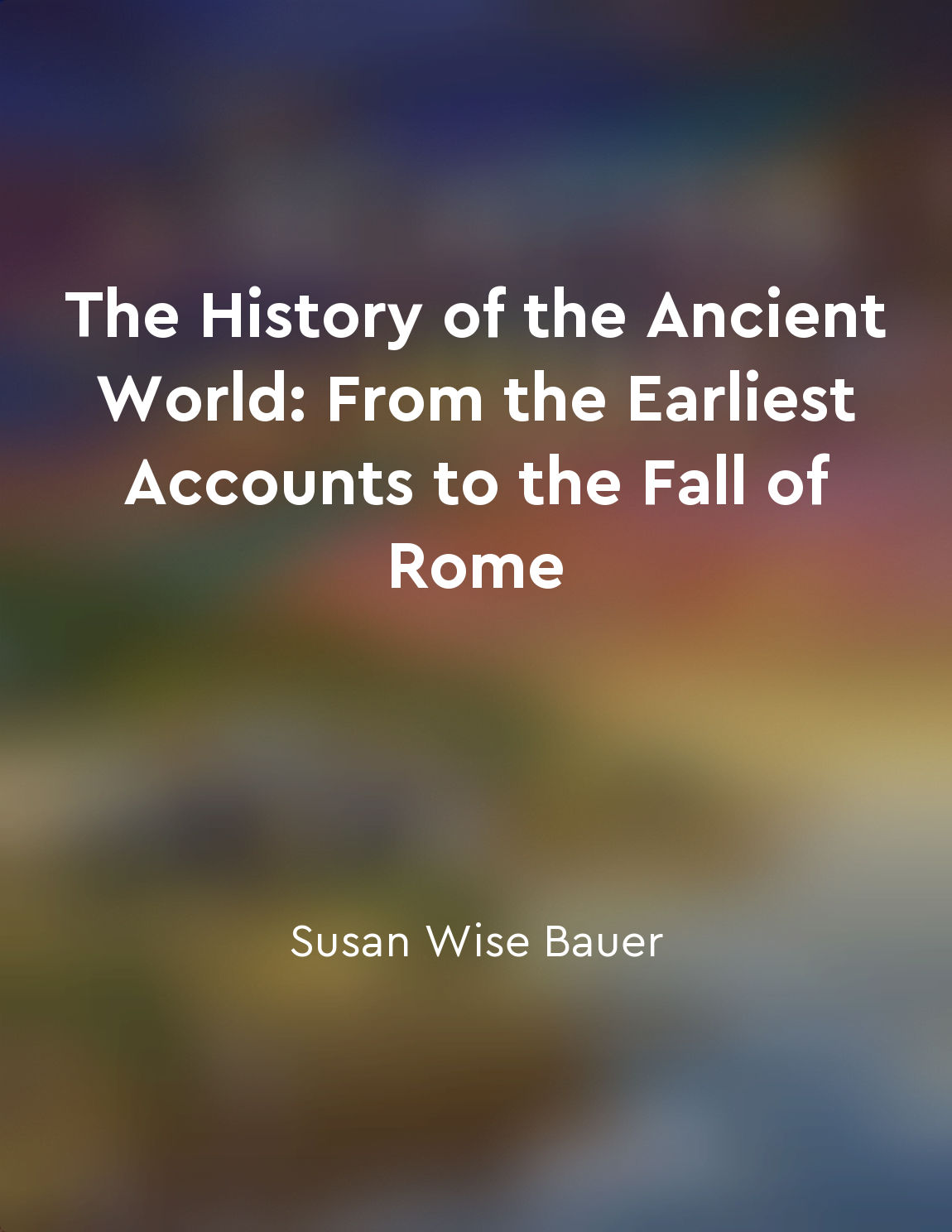Audio available in app
Analyze the challenges faced by postRoman European societies from "summary" of The History of the Ancient World: From the Earliest Accounts to the Fall of Rome by Susan Wise Bauer
After the fall of the Roman Empire in the fifth century, European societies faced a myriad of challenges as they tried to navigate a world without the stability and infrastructure that Rome had provided. One of the most immediate challenges was the breakdown of centralized authority, which had previously been a defining feature of Roman rule. With the collapse of the empire, power became fragmented and localized, leading to a lack of cohesion and coordination between regions. Additionally, the lack of a strong central government meant that there was no longer a reliable system for collecting taxes and maintaining public services. This led to a decline in infrastructure such as roads, bridges, and aqueducts, which had been crucial for the functioning of Roman society. As a result, trade and communication between regi...Similar Posts
Establishment of Constantinople as the new capital
The establishment of Constantinople as the new capital marked a significant turning point in the history of the Roman Empire. T...
Julius Caesar's assassination
It came to pass that Julius Caesar, the great Roman leader, was struck down by the hands of those who once called him friend. O...
Rome reached its peak during the reign of Augustus
The period which elapsed from the death of Augustus to the reign of Marcus Antoninus, was marked by the rare advantage of inter...
Democracy emerges as dominant form of governance
The evolution of political systems has been a long and complex process, shaped by a variety of factors such as geography, cultu...
Spengler analyzes historical cycles
Spengler's analysis of historical cycles revolves around the idea that civilizations go through predictable patterns of growth,...
Rise of the Roman Empire
The Roman Empire, which had already attained a high degree of power and civilization, continued to expand its dominions through...
The decline is irreversible
The decline of a civilization is a gradual process that unfolds over centuries, like the wilting of a flower or the fading of a...
Administrative efficiency under Augustus
The reign of Augustus was marked by a significant improvement in the administrative efficiency of the Roman Empire. Under his r...
Economic disruptions and recovery
The Roman economy was a complex web of interconnected systems that allowed for the flow of goods, services, and resources acros...
Constantine's conversion to Christianity
Constantine, the Roman emperor, played a significant role in the history of Christianity. His conversion to the faith marked a ...

